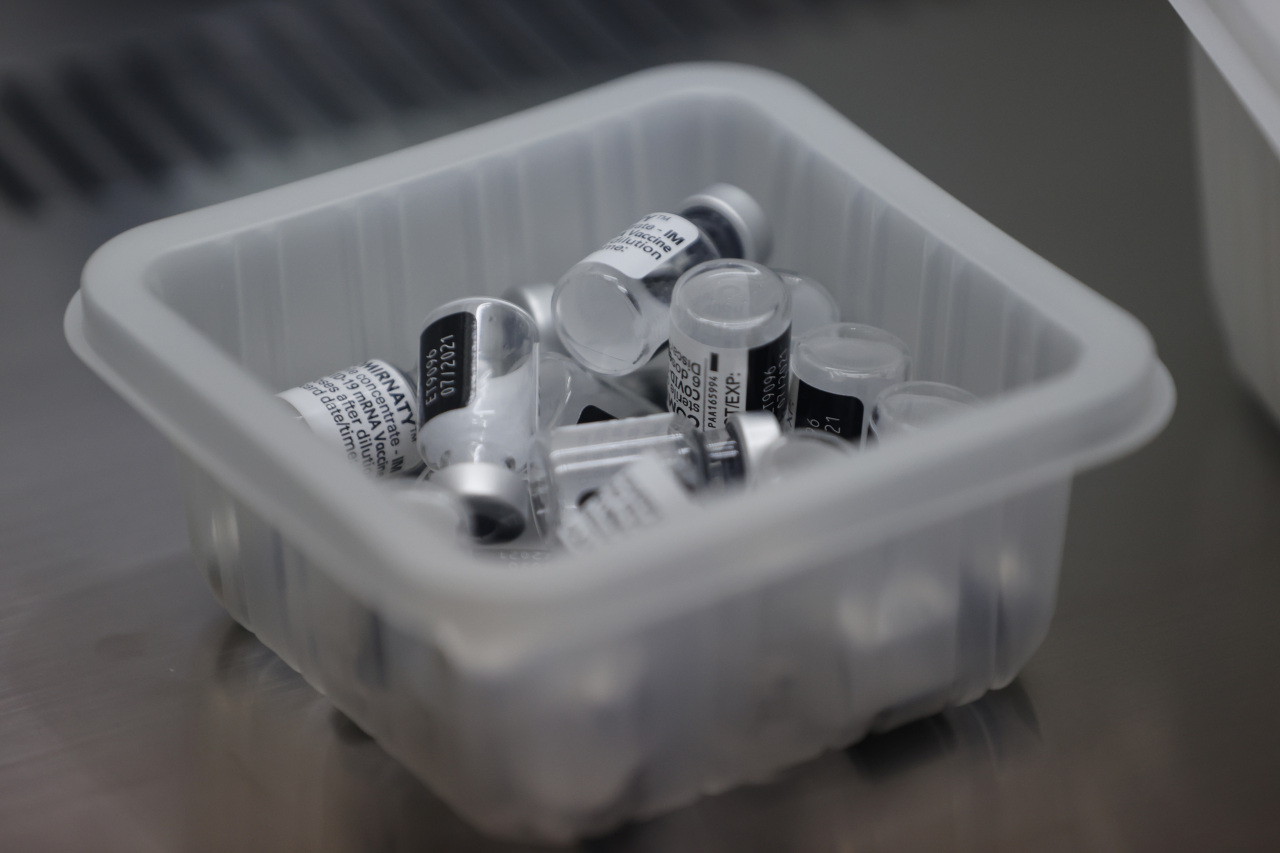Korea stops first-dose appointments amid COVID-19 vaccine supply shortage
Under new plan, 10 million more to get first shot between now and June
By Kim ArinPublished : May 4, 2021 - 16:34

A shortage of COVID-19 vaccines has forced South Korea to halt new vaccinations for about a month, as the Ministry of Health and Welfare said it would opt to prioritize second doses until additional supply becomes available.
The ministry said as of Tuesday, the remaining AstraZeneca vaccine stockpile in the country was only 332,140 doses, with 471,150 doses of Pfizer’s vaccine. The amount left can together cover around 400,000 people, as both vaccines require two doses for maximum protection.
So far, some 3.46 million people have received a single dose of either vaccine in Korea, with 267,000 of them fully vaccinated and the other 3.1 million awaiting their second dose. This means that 0.5 percent of the Korean population have completed their vaccination course.
Since Friday, more than 2,200 vaccination clinics across the country have been told to cancel inoculation appointments. The ministry said first-dose vaccinations are expected to resume May 26 or 27.
Despite the latest interruption in the vaccination drive, Korea is expanding its rollout to give 13 million people million at least a single injection in the first half of the year. The initial target was 12 million.
President Moon Jae-in told his administration’s special COVID-19 response task force meeting Monday that vaccine deliveries slated for later this month and the next were sufficient to extend coverage to at least a million more people.
In announcing the plan, the president said vaccinations in the country were “going through as scheduled.” He also called on authorities to clamp down on “circulation of misinformation surrounding the herd immunity timeline,” which he said was creating public anxiety.
Son Young-rae, the ministry’s spokesperson, said at a closed-door conference Tuesday he “foresees no delays” in deliveries of vaccines. He said the ministry was bringing in supplies due in the second half of the year ahead of schedule. The amount of vaccines that will be introduced during the first half of the year is expected to total 18.3 million doses, he said.
Under the new plan laid out by the ministry, anyone aged 60 and above is to be eligible for vaccination from June. Also included in the rollout are essential workers such as police, firefighters, soldiers and early childhood educators. Pfizer shots are reserved for people 75 years of age or older, as well as those younger than 30. The rest are getting AstraZeneca shots.
Everyone else, with the exception of young children, will be able to get a vaccine starting from July, according to the ministry. People will not be allowed a choice over which vaccine they get. Vaccines will be allotted based on supplies available at a given time, the ministry said, and those who refuse to get it at their turn will not be given a second chance until after November.
By Kim Arin (arin@heraldcorp.com)



![[AtoZ into Korean mind] Humor in Korea: Navigating the line between what's funny and not](http://res.heraldm.com/phpwas/restmb_idxmake.php?idx=644&simg=/content/image/2024/04/22/20240422050642_0.jpg&u=)
![[Exclusive] Korean military set to ban iPhones over 'security' concerns](http://res.heraldm.com/phpwas/restmb_idxmake.php?idx=644&simg=/content/image/2024/04/23/20240423050599_0.jpg&u=20240423183955)



![[Graphic News] 77% of young Koreans still financially dependent](http://res.heraldm.com/phpwas/restmb_idxmake.php?idx=644&simg=/content/image/2024/04/22/20240422050762_0.gif&u=)
![[Herald Interview] Why Toss invited hackers to penetrate its system](http://res.heraldm.com/phpwas/restmb_idxmake.php?idx=644&simg=/content/image/2024/04/22/20240422050569_0.jpg&u=20240422150649)






![[Exclusive] Korean military to ban iPhones over security issues](http://res.heraldm.com/phpwas/restmb_idxmake.php?idx=652&simg=/content/image/2024/04/23/20240423050599_0.jpg&u=20240423183955)



![[Today’s K-pop] Ateez confirms US tour details](http://res.heraldm.com/phpwas/restmb_idxmake.php?idx=642&simg=/content/image/2024/04/23/20240423050700_0.jpg&u=)